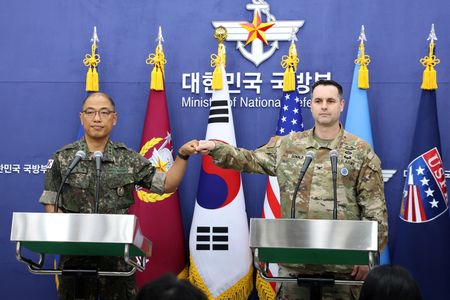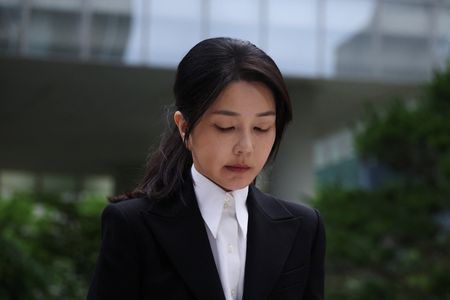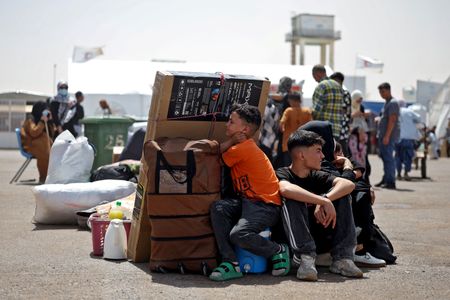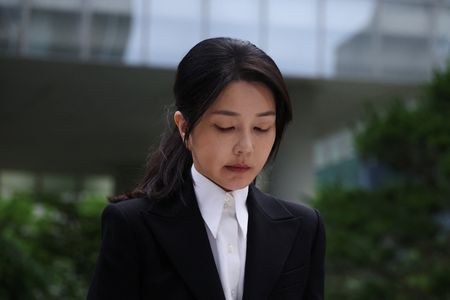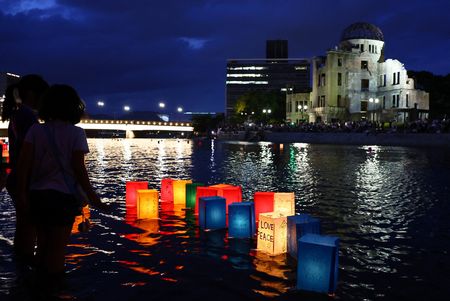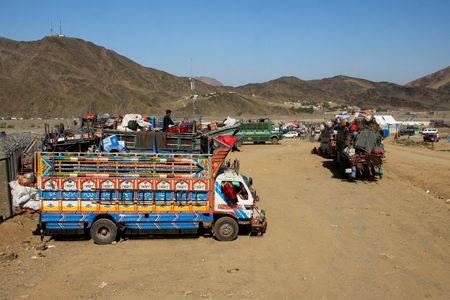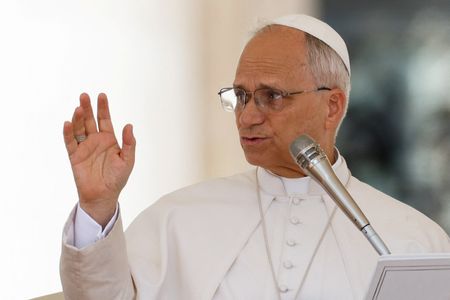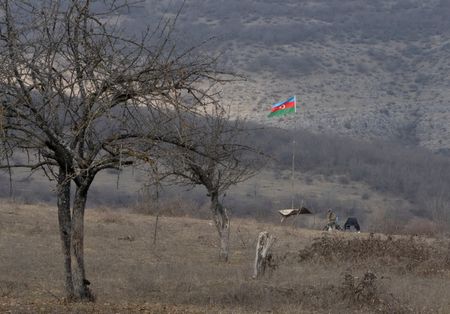By Jack Kim and Heejin Kim
SEOUL (Reuters) -South Korea and the United States will conduct major joint military drills starting on August 18, officials said, although they will delay parts of the annual exercises that have been a source of tension with North Korea to later in the year.
The 11-day annual exercises, called Ulchi Freedom Shield, will be on a similar scale to 2024 but adjusted by rescheduling 20 out of 40 field training events to September, South Korea’s Joint Chiefs of Staff spokesperson Lee Sung-jun said.
The allies agreed to reschedule some parts of the drill to next month over factors “including ensuring training conditions during extreme heat and maintaining a balanced combined defence posture year-round,” Lee said at a briefing.
This year’s drill will test an upgraded response to heightened North Korean nuclear threats as well as cutting-edge technologies used in modern wars, Lee said, citing conflicts in Ukraine and the Middle East.
The exercise will include a scenario of a North Korean missile launch, but will not cover a potential nuclear test by Pyongyang, he said. The decision to spread out the scheduling included reasons such as extreme weather, Lee said, denying there were any political factors behind the move.
The drills are due to be staged as the new South Korean government of President Lee Jae Myung seeks to improve strained ties with Pyongyang and revive stalled dialogue with its neighbour.
A senior official from South Korea’s Unification Ministry, which manages relations between the Koreas, said on Thursday that the delay in some training exercises was aimed at easing tensions with North Korea, the Yonhap News Agency reported.
Some analysts were sceptical about Pyongyang’s response.
“North Korea won’t be satisfied with the adjustment at all,” said Cheong Seong-chang, vice president at the Sejong Institute in Seoul, a research centre on North Korean affairs.
“What the regime wants is the termination of the drills with the U.S., not a slight rescheduling,” said Cheong.
On Monday, South Korea removed loudspeakers blasting anti-North Korea propaganda near its border with the North in a bid to lower friction with Pyongyang.
So far North Korea has rebuffed such overtures by Seoul.
Kim Yo Jong, the powerful sister of North Korean leader Kim Jong Un, recently said that South Korea’s decision to stop the broadcasts was “not the work worthy of appreciation,” state media KCNA reported.
(Reporting by Jack Kim and Heejin Kim; Editing by Himani Sarkar, Ed Davies and Raju Gopalakrishnan)

